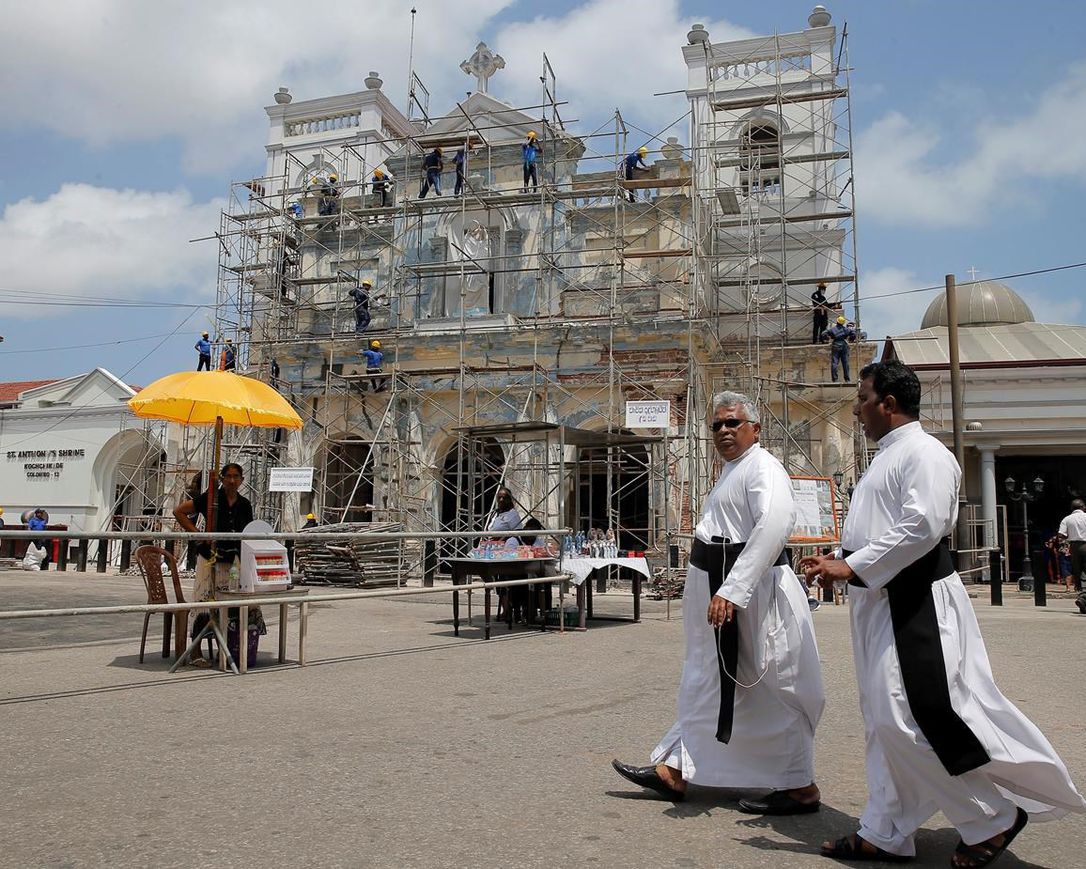 By Luke Mouracade, '21In July of 2014, a man named Abu Bakr al-Baghdadi stood in the al-Nuri Mosque in Mosul, Iraq, and declared himself the head of a rapidly growing and terribly violent Islamic caliphate, known to many as ISIS, Islamic State in Iraq and Syria. Five years later, on April 29, 2019, he made his second public appearance.In an 18 minute video released through the SITE Intelligence Group, an American company that tracks online extremist activity, al-Baghdadi praised recent attacks carried out by ISIS members, such as the Easter bombings in Sri Lanka, and swore that the ideas and philosophies of the Islamic State have not died. His appearance comes only a few months after President Donald Trump declared in a tweet that “We have defeated ISIS in Syria.”Al-Baghdadi appeared once in 2014 to mark the beginning of the rule of his caliphate, and he appears now to mark its transition to a new phase of existence. In the five years between his appearances, the Islamic State went from controlling nearly 88,000 km2 to holding essentially no land. At its peak, the jihadist organization had collected nearly $6 billion, and it was threatening to continue expanding in territory and wealth.Now, ISIS looks very different. While some ISIS fighters continue to fight for land and sell oil stolen from fields in northern Iraq, it has largely transformed into an international jihadist network, working online to inspire and finance attacks. The Worldwide Threat Assessment, the “United States Intelligence Community’s 2019 assessment of threats to US national security,” states that “ISIS still commands thousands of fighters in Iraq and Syria, and it maintains eight branches, more than a dozen networks, and thousands of dispersed supporters around the world, despite significant leadership and territorial losses.” While the organization has lost all its territory, this allows jihadist members of ISIS to spend less time and money worrying about mundane governmental tasks such as healthcare, garbage and road maintenance, and more time planning attacks. ISIS’s budget may have decreased, but so have its expenses.Al-Baghdadi’s appearance marks his rebuttal to Trump’s claim that ISIS has been “defeated.” His praise of the Sri Lankan attacks will likely inspire other jihadists worldwide who, until now, perhaps remained in the dark as to whether or not their organization’s leader was still alive or active. ISIS will unfortunately remain a very serious international threat for the foreseeable future.
By Luke Mouracade, '21In July of 2014, a man named Abu Bakr al-Baghdadi stood in the al-Nuri Mosque in Mosul, Iraq, and declared himself the head of a rapidly growing and terribly violent Islamic caliphate, known to many as ISIS, Islamic State in Iraq and Syria. Five years later, on April 29, 2019, he made his second public appearance.In an 18 minute video released through the SITE Intelligence Group, an American company that tracks online extremist activity, al-Baghdadi praised recent attacks carried out by ISIS members, such as the Easter bombings in Sri Lanka, and swore that the ideas and philosophies of the Islamic State have not died. His appearance comes only a few months after President Donald Trump declared in a tweet that “We have defeated ISIS in Syria.”Al-Baghdadi appeared once in 2014 to mark the beginning of the rule of his caliphate, and he appears now to mark its transition to a new phase of existence. In the five years between his appearances, the Islamic State went from controlling nearly 88,000 km2 to holding essentially no land. At its peak, the jihadist organization had collected nearly $6 billion, and it was threatening to continue expanding in territory and wealth.Now, ISIS looks very different. While some ISIS fighters continue to fight for land and sell oil stolen from fields in northern Iraq, it has largely transformed into an international jihadist network, working online to inspire and finance attacks. The Worldwide Threat Assessment, the “United States Intelligence Community’s 2019 assessment of threats to US national security,” states that “ISIS still commands thousands of fighters in Iraq and Syria, and it maintains eight branches, more than a dozen networks, and thousands of dispersed supporters around the world, despite significant leadership and territorial losses.” While the organization has lost all its territory, this allows jihadist members of ISIS to spend less time and money worrying about mundane governmental tasks such as healthcare, garbage and road maintenance, and more time planning attacks. ISIS’s budget may have decreased, but so have its expenses.Al-Baghdadi’s appearance marks his rebuttal to Trump’s claim that ISIS has been “defeated.” His praise of the Sri Lankan attacks will likely inspire other jihadists worldwide who, until now, perhaps remained in the dark as to whether or not their organization’s leader was still alive or active. ISIS will unfortunately remain a very serious international threat for the foreseeable future.